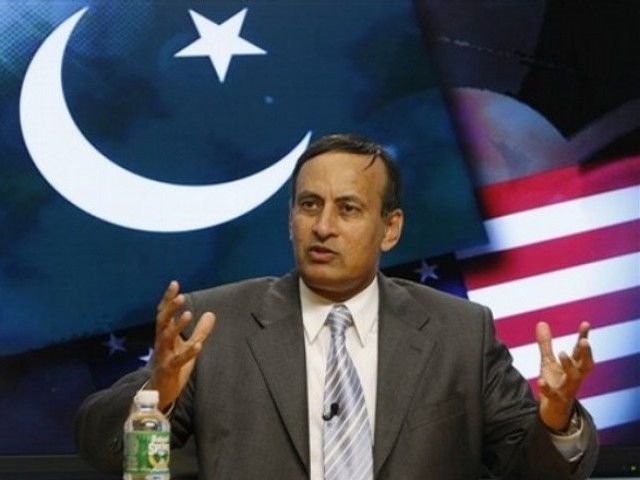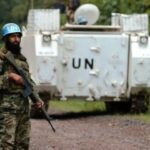
The order was issued by a nine-judge larger bench headed by Chief Justice Iftikhar Chaudhry, which is hearing several petitions on the “Memogate” issue, including one filed by Prime Minister-designateNawaz Sharif.
The apex court directed the Interior and Foreign Secretaries to take steps to bring Haqqani back to Pakistan in four weeks.
The bench further directed the Attorney General and the secretaries to ensure a foolproof security plan for Haqqani.
Haqqani is currently in the US and has said he will not come to Pakistan for the hearing of the case because of serious threats to his life.
His lawyer Asma Jahangir told the bench during today’s proceedings that she had spoken with her client last night and he was not ready to return to Pakistan because of security concerns.
The Chief Justice remarked that the court has the option to try Haqqani in his absence if he does not come back.
Justice Asif Khosa remarked the trial could be initiated against Haqqani without his presence.
Haqqani was accused of delivering to the US military a secret memorandum that allegedly sought help to prevent a coup in Pakistan in the wake of the American raid that killed Osama bin Laden in May 2011.
The memo allegedly committed Pakistan to wide-ranging changes in its national security set-up, including the removal of military officials believed to have links to militants.
Haqqani has denied the allegations.
Jahangir said Haqqani feared the trial would not be free and fair as Sharif, who is one of the petitioners, is set to become premier within a few days.
The Chief Justice remarked that it makes no difference who becomes the Prime Minister as the issue will be decided according to the law.
No one will be allowed to exploit any one, he said.
The Chief Justice directed authorities to adopt all constitutional and legal procedures to facilitate Haqqani’s appearance in court.
He further said Haqqani is not an accused and the Constitution protects the fundamental rights of all citizens.
The court subsequently adjourned the case for four weeks.
Source: PTI









Demanding that Mr Haqqani
must fulfil his undertaking of returning to the country despitethreats to his
life is thin on legality, since there is merely an inquiry against him, and not
a trial, (the SC cannot be the trial court in any case). The SC, therefore,
exhibiting restraint, should avoid issuance of orders that will not be
respected in theory and practice. There does not seem to be any substance left
in the memo case, and instead of trying to coerce HusainHaqqani to return, the
SC, in a prudent move, should terminate the inquiry, which culminated without
bringing any evidence against the former ambassador, and which, being conducted
without due process, could further embarrass the SC.